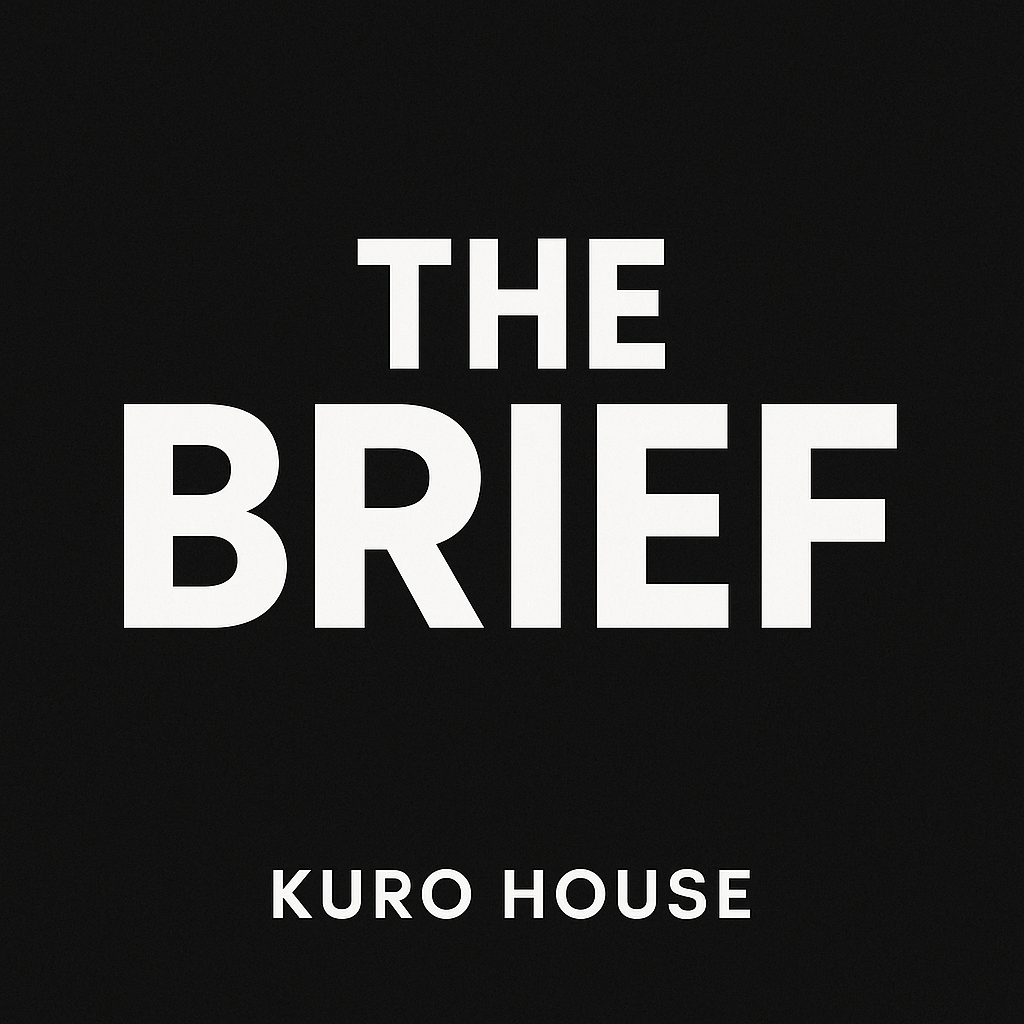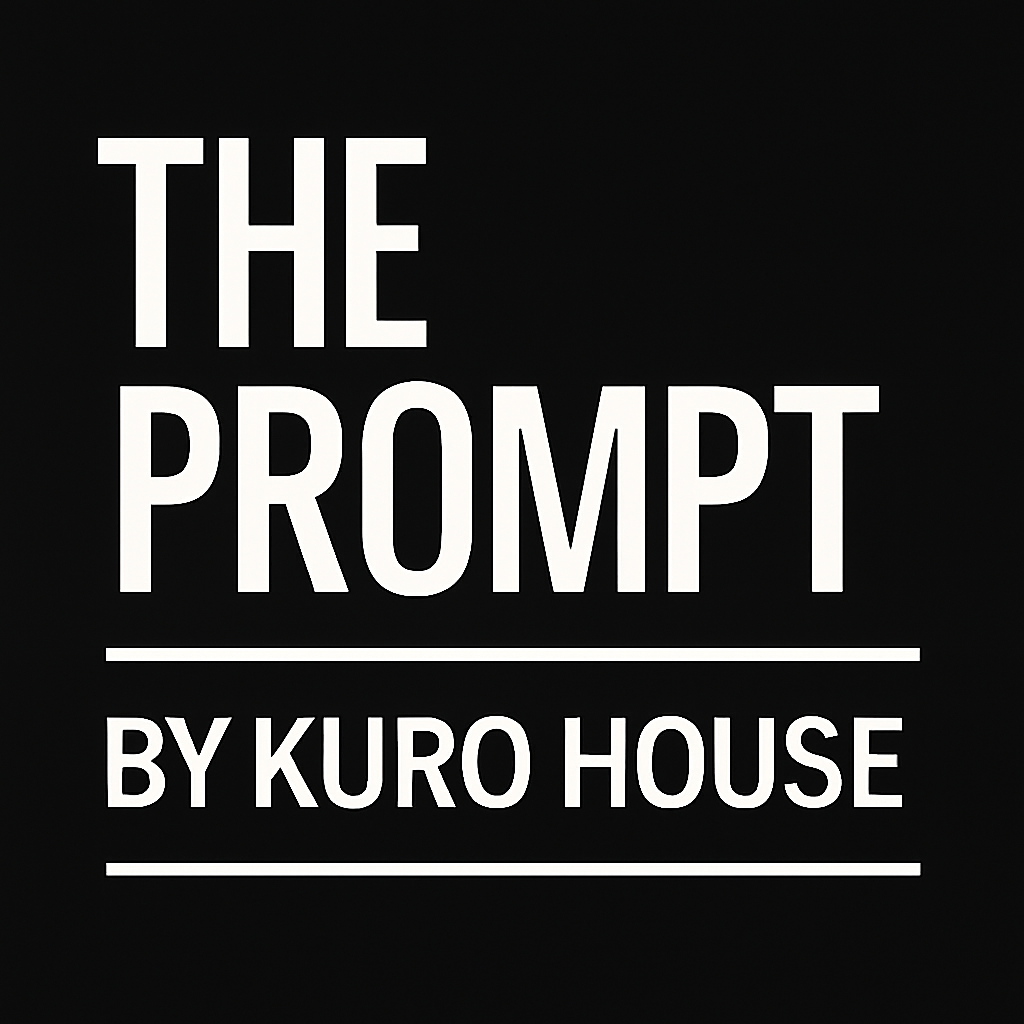Listen To The Show
Transcript
Welcome to The Brief by Kuro House, your daily shot of sharp marketing insight. Today we’re diving into the latest moves from industry leaders—from Hasbro’s bold leap into gaming, to how AI is reshaping the humble holiday gift guide, to a new way of measuring cultural relevance that could change how brands understand their impact. Plus, we’ll hear the inspiring story of Bozoma Saint John’s self-made career, and explore why micro-influencers are winning over mega-stars. Let’s get right into it.
First up, Hasbro is making headlines with a major strategic pivot. According to Adweek, Hasbro’s CMO Jason Bunge announced at Brandweek in Atlanta that the company will begin developing its own video games starting next year. This is a first for Hasbro, whose iconic IPs like Magic: The Gathering and Dungeons & Dragons have long been adapted into games by external studios. Bunge kept details under wraps for now, promising more at the Game Awards on December 11. The move signals Hasbro’s shift away from broad, one-size-fits-all marketing toward building deeper, more tailored engagement with niche communities. Bunge explained that Hasbro’s influencer strategy is no longer about chasing the biggest names like MrBeast, but seeking out smaller, highly engaged creators—sometimes with as few as 1,000 followers—who speak directly to distinct fan bases. This bespoke approach recognizes the unique cultures around brands like Monopoly, Transformers, Magic, and now, video games. Hasbro’s recent collaborations with Disney, Final Fantasy, and Netflix’s Kpop Demon Hunters reflect this multi-touchpoint strategy. Meanwhile, Twitch’s CMO Rachel Delphin echoed the need for brands to “show up as fans” and participate authentically in community spaces, not just broadcast messages. As media fragments, Hasbro’s play is clear: build and own the cultural conversations that matter to each audience.
Next, let’s talk about a new way to measure what really matters for brands in culture. Viral Nation, as reported by Adweek, just launched The Culture Quotient—or CQ—at Brandweek. This proprietary framework is designed to measure not just how visible a brand is, but how deeply it resonates in culture and drives business outcomes. Using advanced AI and social intelligence, CQ goes beyond traditional metrics like earned media value (EMV) and impressions, which only capture reach. Instead, it analyzes engagement growth, conversation volume, sentiment, and more to give a benchmarkable, trackable score tied directly to business results. CEO Joe Gagliese described CQ as the next evolution of measurement, while Richelle Batuigas, EVP of business intelligence and data strategy, emphasized that “cultural connection is the new currency of trust.” Viral Nation’s data shows that when people perceive a brand as culturally relevant, it boosts consideration, loyalty, and sales. The goal is to give marketers actionable insight into not just the quantity, but the quality and context of their cultural impact—helping brands move from being loud to being truly meaningful.
Shifting gears to holiday marketing, Modern Retail reports that AI is reinventing the holiday gift guide. Gift guides have always been a Q4 staple, but now they’re a crucial lever for both immediate sales and long-term brand discovery—thanks in large part to AI-powered recommendations. Lauren Kleinman of PR agency Dreamday explains that mentions in trusted publications don’t just drive clicks in December; they now influence how AI tools like ChatGPT surface brands year-round. As a result, brands are getting more strategic: pitching not just mainstream outlets, but also Substack newsletters and niche creators, and focusing on building relationships with editors. For new brands, a gift guide mention is as much about credibility as it is about traffic. Companies like Lyst, a global fashion marketplace, are using AI to create dynamic, constantly updated gift guides tailored to user behavior and trends—while still relying on human editors for that crucial taste check. Lyst’s Katy Lubin notes that after a product is featured in a guide, it sees an average 115% lift in “purchase intent.” The upshot? The modern gift guide is no longer a static list—it’s a living, data-driven tool for ongoing brand elevation.
For a dose of inspiration, look no further than Bozoma Saint John’s story, as recounted in Adweek. Saint John, who’s held top marketing roles at Pepsi, Apple, Uber, and Netflix, spoke at Brandweek about the power of self-championing—especially as a Black woman in a business where advocates can be scarce. Her career is marked by bold moves: taking the reins at Uber during a leadership crisis, repositioning the brand with a new CEO, and turning personal tragedy into professional reinvention. After losing her husband in 2013, she left PepsiCo for Beats, then moved to Apple after Beats’ acquisition. Saint John’s philosophy is to be her own light and advocate, rather than waiting for validation from others. She shared, “There are so many myths about what it takes to be a leader… What I want to show is the fact that I am human, and that terrible things have happened in my life, and I have found ways to navigate those tragedies and that loss and grief in order to not just survive, but to thrive.” Her story is a reminder that leadership is often about trusting your intuition and forging your own path, even when the way forward isn’t clear.
Finally, let’s circle back to the influencer space, where Hasbro’s approach highlights a growing trend: the rise of micro-influencers. Instead of betting big on mega-stars, brands are increasingly seeking out smaller creators who can drive authentic engagement within tight-knit communities. As Jason Bunge put it, “The communities for Monopoly are very different than communities for Transformers… We have to be both bespoke, but then we also have to scale.” This strategy allows brands to tailor messages to the unique cultures of each fandom, while building credibility and loyalty from the ground up. It’s a shift that recognizes the power of quality over quantity—and the importance of meeting audiences where they are.
That’s it for today’s edition of The Brief. From new measurement tools to AI-powered holiday strategies, and from bold brand moves to personal stories of resilience, the marketing world is evolving fast—and getting more human, even as it gets more high-tech. Thanks for tuning in. Stay sharp, keep questioning, and we’ll see you tomorrow.

